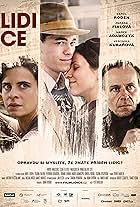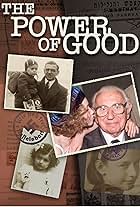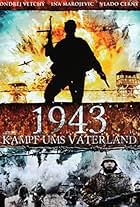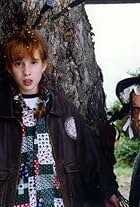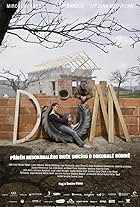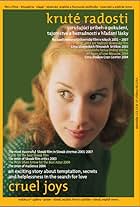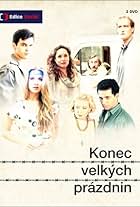Advanced search
- TITLES
- NAMES
- COLLABORATIONS
Search filters
Enter full date
to
or just enter yyyy, or yyyy-mm below
to
to
to
Exclude
Only includes titles with the selected topics
to
In minutes
to
1-50 of 250
- The burning of the village of Lidice by Nazi Germany is the only official genocide during the war. The film tells three interconnected stories that all have to do with burning down and the destruction of Lidice in 1942. The first story is about an unfortunate family where the father accidentally kills his son during a heated discussion, and is sentenced to a prison sentence . The second story is a letter that is the cause of the massacre. The third story is about fear, personal responsibility, and whether survival is a victory when you have to surrender your dignity and honor for it.
- Being constantly bullied by his peers, 11-yr old Michal Ronec develops a friendship with a man and the man's horse Aphrodite.
- A gripping documentary about the courage and determination of a young English stockbroker who saved the lives of 669 children. Between March 13 and August 2, 1939, Nicholas Winton organized 8 transports to take children from Prague to new homes in Great Britain, and kept quiet about it until his wife discovered a scrapbook documenting his unique mission in 1988. Winton was a successful 29-year-old stockbroker in London who "had an intuition" about the fate of the Jews when he visited Prague in 1939. He quietly but decisively got down to the business of saving lives. We learn how only two countries, Sweden and Britain, answered his call to harbor the young refugees; how documents had to be forged and how once foster parents signed for the children on delivery, that was the last he saw of them.
- In the land of King Dobromil (Josef Somr) honest labor, decency, honesty and respect among people has become a thing of the past. Instead the country is gradually succumbing to Hell's force and, thus, those who have some remnants of decency prefer to flee. Slightly befuddled herbalist Apollonia (Iva Janzurová) has a dream that the land is rescued by an unknown 'saviour' who arrives with on an ass and marries Annie (Tatiana Pauhofová), the king's daughter. But who will believe this mad herbalist with her 'magical' herbs that often cause more chaos than benefit? When things are at their worst in the country, the king signs his soul away to Hell and the Government is taken over by his base Minister (Jirí Lábus). At this time there arrives in the Kingdom an inconspicuous happy dreamer Philip (Stepán Kubista).
- The true story of Jewish boy, and talented soccer player, Martin, who has to make risky lifetime decisions in order to survive in World War II when he sees his family is taken to Poland one by one.
- A historical co-production with fairy tale elements. It concentrates on Tomás (Brano Holicek), a 14-year-old boy who lives beneath the castle of the powerful Lord Balador (Juraj Kukura). The boy is able to communicate with animals, and he tries to obtain the royal falcon - a symbol of freedom and faith. He also falls in love with Balador's daughter Formina (Klára Jandová), a girl who is to be married off against her will.
- A situational documentary about a generation of singles in their 30s who live in a medium-sized Slovak village, and their mayor who, in an effort to maintain the village population, sets out to bring them together. It took its mayor, a retired army general, seven years to straighten out the whole village. Nearly all houses have been repaired, the gardens are in bloom, there are four grocer's shops and two pubs, and the brook is crystal clear. However, there is a persistent problem bothering the mayor. The village is slowly but surely dying out. He has decided to tackle the 'pan European countryside trend' and he tries to motivate the singles in the village to marry each other and start families.
- For her feature debut, Michaela Pavlátová drew upon Slovak author Tina Diosi's psychological story of a mutual search for marital harmony. The film sketches a story of a pianist named Eva (Zuzana Stivínová) who follows her husband, the musician and composer Peter (Peter Bebjak), to a small village near the Slovak-Hungarian border. While Peter is grateful for the peace and quiet he finds there for composing, Eva looks in vain for a chance to play, and feels separated not only from her family but also from familiar Prague surroundings and friends.
- At 38, Thomas is at a crossroads in his life. His parents are nonstop guilt-inducers, his ex-wife is always on his back, and his son is far from inspirational. Thomas himself is almost too intellectual to survive daily life. The attentions of a straightforward English teacher seem to be a way out.
- The story about events during the First World War. The wife of an officer of the Austrian army decides to surprise her husband and to visit him in his unit at Christmas time. She is disappointed to find only a cruel soldier. Fate makes her be present at the time when he is suffering from pain and slowly dying. She asks a therapeutic, a prisoner in a near-by camp, to rid her husband of his pain.
- This simple story is the feature debut for well-known Slovak theater and television director Juraj Nvota. Set in a Slovak village at the turn of the last century, the story teems with passion, and repressed and hidden emotion. It delves into the search for identity, investigating both love and hatred, while dramatizing the tragic relationship between an adolescent girl (Tatiana Pauhofová) and her ambitious father (Ondrej Vetchý). Set against the striking though simple backdrop of a picturesque, even idyllic, landscape - one ostensibly cut off from any important historical, political, or social context whatsoever - the arrival of an unwanted individual evokes the onset of a cruel drama.
- The story takes place in a reform-camp for the prostitutes of Bratislava. Soon after the political changes in February 1948 a deputy of the Ministry of the Interior decides to clean the city from its subverting elements. After a police raid all the prostitutes are transported to work-camps where they are supposed to be converted to loyal citizens.
- Three generations of women living in the same household, trying to get along with their different priorities of life.
- Fates of twelve people just after their emigration from Czechoslovakia to Austria in June to October 1983.
- A fresh perspective on contemporary life in Eastern Europe infuses this winning comic drama. Through a mosaic of real and dreamlike situations, we witness art history student Zuza fly off course in her effort to obtain as much from life as she can in the shortest possible time. Like most young people, she wants to study, earn big money, find and enjoy the love of her life, and replace her dysfunctional family with something more stable. Her story unfolds in present day Bratislava and Paris. Zuza, however, is not a typical poor student. Besides studying, she earns her living as a dubbing actress. She s independent, financially secure, and popular, but she lacks the permanent relationships, strong family ties and security that might bring a bit of order into her chaotic existence. It seems that only her eccentric grandmother Erzsebet, for whom Zuza cares dearly, can help Zuza settle down and find her true self.
